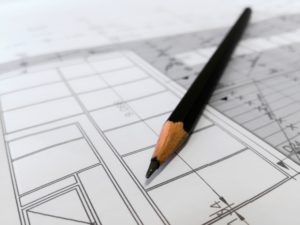
What is a Licence for Alterations? Often in Commercial Property a tenant may require certain alterations to the property they occupy under a lease. To carry out these alterations, the tenant will likely need the consent of the landlord. This consent will come in the form of a document called a ‘Licence for Alterations’.
These alterations can be required for a variety of reasons, such as altering the structure to fit the tenant’s commercial needs, installing new service installations or opening the layout of the property by removing walls (or the contrary – erecting walls or a partition to create offices or other smaller rooms within the property). Whether or not a Licence for Alterations is necessary will depend on how much work the tenant is proposing to carry out to the property, as well as what the lease itself states.
Most leases will restrict any alterations to the exterior or structure of the property completely (meaning nothing can be done unless the landlord waives the restriction), but commonly, any internal, non-structural alterations will be permitted so long as the landlord’s consent is given. Typically, the landlord’s consent is stated to be not unreasonably withheld, meaning a landlord can only refuse the tenant’s request with a reasonable objection.
Rarely, a lease will not state that the landlord’s consent is required for alterations, which means the tenant can, in such circumstances, carry out any alterations they desire without penalty.
Ensure compliance with a Licence for Alterations
A Licence for Alterations is important to the tenant for a number of reasons, namely to ensure they comply with the terms of their lease (so to avoid breaching the lease and facing enforcement action). If a Licence for Alterations is not granted prior to the works being carried out and the tenant retrospectively seeks this, the landlord will be given a huge advantage in terms of negotiating power and the demands they can make for the Licence to be given, so its importance should not be overlooked. Finally, a tenant seeking to assign a lease whereby unauthorised alterations have taken place may face difficulties in finding potential purchasers.
For the landlord, a Licence for Alterations is important to ensure that all works carried out to their property are accurately recorded. It is not uncommon for leases to contain a reinstatement clause – an obligation on the tenant to return the property to the condition it was in prior to the lease commencement, which can include an obligation to remove any fittings installed by the tenant during their occupation. While these works are typically carried out at the tenant’s own cost, it is important for the landlord to have a clear and detailed understanding of what is required to be removed.
 Alterations could, potentially, have a negative financial impact on the value of the landlord’s property, as the works could affect the integrity or safety of the building or, if the alterations are specific to the previous tenant’s requirements, it could be difficult for the landlord to re-let the property to new tenants with different requirements.
Alterations could, potentially, have a negative financial impact on the value of the landlord’s property, as the works could affect the integrity or safety of the building or, if the alterations are specific to the previous tenant’s requirements, it could be difficult for the landlord to re-let the property to new tenants with different requirements.
It is important, therefore, that the landlord obtains a detailed list or specification of the works the tenant intends to carry out. If required, the landlord should seek advice from a surveyor to ensure the alterations do not affect the property or, indeed, any potential neighbouring property. If the specification contains works that would require planning permission, a prudent landlord would also want to ensure the tenant has this in hand (the lease may also contain provisions for the landlord to consent to any required planning applications).
Any alterations made to the property may also affect any rent review provisions, depending on how the lease has been drafted. The Licence for Alterations will often contain some provisions to ensure that the works are carried out to a quality and to the satisfaction of the landlord, but the landlord should always check that they are happy with this.
It is vital for both the landlord and the tenant, therefore, that when alterations are proposed under a lease, a Licence for Alterations is considered and put in place where required. With an experienced Commercial Property department, BHW Solicitors is well placed to advise both landlords and tenants regarding a Licence for Alterations, so please feel free to call our main office on 0116 289 7000 and ask to speak to a member of the Commercial Property team or email info@bhwsolicitors.com.
